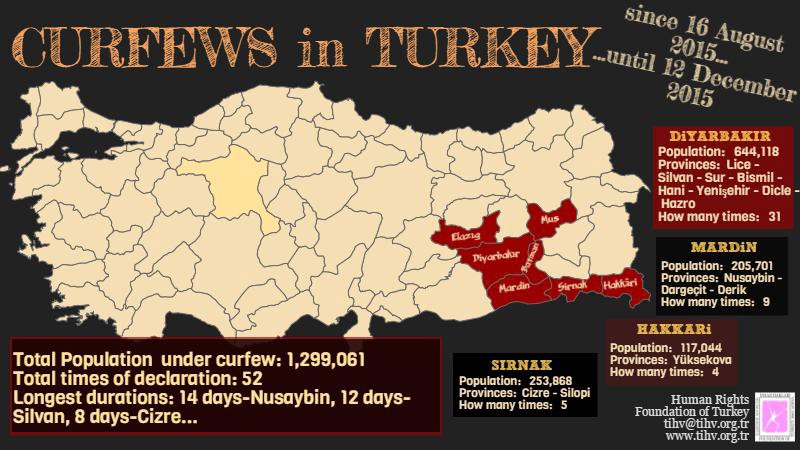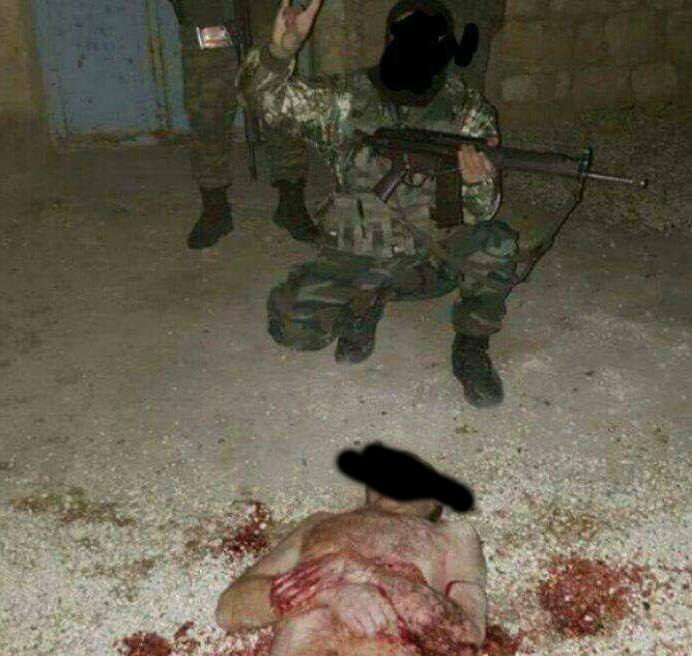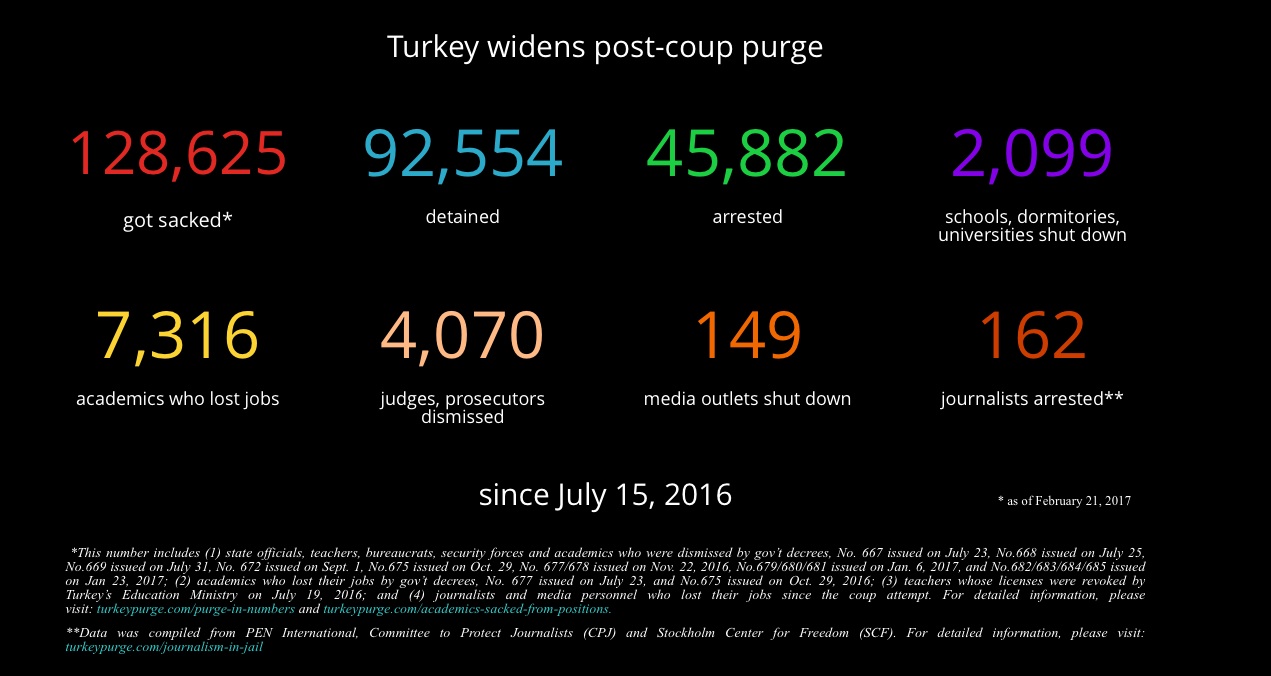Since August, 52 curfews have been declared by the Turkish state in Kurdish towns and neighborhoods. Despite the repression, the resistance is thriving.
Written by Joris Leverink. Published 12-15-2015 in ROAR Magazine.

What remains of a home in Sur, one of the Kurdish towns and neighborhoods placed under curfew by the Turkish authorities. Image via Twitter.
The scenes of destruction in the Kurdish towns and neighborhoods placed under curfew by the Turkish authorities do not just resemble a war zone – they are a war zone. This is a war of a government against its people. A total war, in which a government is indiscriminately targeting a civilian population, killing the youth, destroying houses, burning down historical monuments.
Dozens of people have been killed by Turkish police and special forces in the past few months. From months-old babies to 76-year old grandfathers. Mothers, daughters, students, school kids – lives cut short by the terror of the state.
The world might prefer to ignore this fact because Turkey is being such a valuable ally at the moment. On the one hand it plays a role as the gatekeeper of Fortress Europe, while on the other it is the patron of many “opposition” groups fighting against Assad in Syria – many of whom awkwardly keep their imperialist friends close, but their jihadi enemies even closer.
On Friday, a curfew that had been imposed on Sur, the historical district of Diyarbakir, was lifted for a few hours. In the nine days the neighborhood was cut off from the outside world, special police forces descended upon the area like vultures on a feast. Randomly bombing and shooting at the densely populated neighborhood where there is no escape from the violence for those trapped inside.
During an earlier curfew several weeks ago, special forces had left a message on the wall of one of the neighborhood’s houses: “You will see the power of the Turk”, signed, the Esedullah Tim. There has been much ado about this special ops team, whose name translates to “lions of god”. In every town under curfew, the same graffiti appears on walls, and locals speak of bearded men shouting insults, and using extreme violence against the population.
So far, their existence remains shrouded in mystery, with the government refusing to comment. It is clear, however, that this is a special unit placed above the law, whose sole purpose is to terrorize the population.
In the June elections, the leftist Peoples’ Democratic Party (HDP), with its roots in the Kurdish freedom movement, managed to breach the exceedingly high 10 percent electoral threshold, bringing an end to the 13-year one-party rule of the Justice and Development Party (AKP). Posing a serious obstacle to the ambitions of the AKP’s founder and current president Erdoğan to turn Turkey into a 21st century sultanate, the HDP and its Kurdish supporters became the target of a state-orchestrated terror campaign.
The peace process between the state and the Kurdish guerrillas of the PKK was brought to an end, and a bombing campaign of PKK positions in Turkey and northern Iraq was launched. Hundreds of HDP party offices across the country were attacked by nationalist mobs, while the police failed to intervene. Kurdish people were attacked on the streets, abused, insulted and in some cases even killed. The Turkish military even attacked the Kurdish YPG militias fighting against the so-called Islamic State across the border in Syria.
 The Human Rights Foundation of Turkey released a detailed report listing the 52 curfews that have been declared by the state since August. Repeated round-the-clock curfews, often lasting days on end, were imposed in 17 different cities, affecting 1.3 million people. A total number of 157 people have died during these curfews, murdered by the state.
The Human Rights Foundation of Turkey released a detailed report listing the 52 curfews that have been declared by the state since August. Repeated round-the-clock curfews, often lasting days on end, were imposed in 17 different cities, affecting 1.3 million people. A total number of 157 people have died during these curfews, murdered by the state.
Currently, curfews are imposed in five different towns and neighborhoods: Sur in Diyarbakir, Dargecit and Nusaybin in Mardin, and in Cizre and Silopi in Sirnak.
There are fears that the crackdown will be especially long and brutal in Cizre and Sirnak. On Sunday the government ordered all school closed, dormitories shut down and called all teachers back to their home towns to attend “special training sessions” — apparently to spare the large number of Turkish teachers from the terror launched against their Kurdish countrymen. While police and military forces were amassing at the cities’ borders, hospitals received instructions to be prepared.
Some teachers of the Egitim-Sen Union chose to ignore the government’s orders and to stay in the towns. Independent news website Sendika.org spoke to the co-chair of the local chapter of the union, Serhat Ugur, who was quoted as saying:
“It is as if we have a war here. They are coming as if to destroy our whole town and raze it to the ground. How could such a move be justified? If this happened in Palestine everybody [in Turkey] would be up in arms. We are following the news, but not a whisper of the events here is heard. We are facing a total annihilation. They [the government] are coming here as if to confine us inside for about 10-15 days.”
In the past days, major protest occurred in many cities across the Kurdish parts of Turkey. The biggest protest was seen in Diyarbakir, where tens of thousands of people defied a ban by the governor and took to the streets in solidarity with the people of Sur. In the clashes, two youths of 21 and 19 years old, were shot dead by the police.
The war across Kurdistan continues. In the southern parts, the Kurds are fighting the Islamic State, and in the north they are under attack from the Turkish government. When the AKP was rewarded for its strategy of divide and rule prior to the November elections, and received nearly 50 percent of the votes despite its campaign of terror directed against its own citizens, all incentives to look for a peaceful solution to the so-called “Kurdish issue” had vanished.
The violence, repression, and the propaganda aimed at polarization and marginalization has paid off. In the international arena, no country will stand up to Turkey and demand that it respects the lives and demands of its Kurdish citizens. Locally, the media remains firmly under the control of the government, allowing for little news from the besieged towns to reach the outside world.
Meanwhile, the people of Cizre, Silopi, Sur and Nusaybin brace themselves for what might be weeks of shootings, bombardments and killings — not even safe inside their own homes because a bullet or a rocket might come flying through the window any minute.
The Turkish state calls this “fighting terror”, but they have misunderstood. The only true fight against terror is fought by the people on the streets and behind the barricades, in the cities and in the mountains, at the assemblies and in the local meetings. This fight is long and hard, and has been going on for decades, if not centuries. But it takes more than a few masked men and some heavy artillery to break the resistance.
In the words of the tens of thousands protesters on the streets of Diyarbakir: “The struggle continues and Kurdistan will be the grave of fascism!”
About the Author:
Joris Leverink is an Istanbul-based political analyst, freelance writer and activist. He is an editor for ROAR Magazine, columnist for teleSUR English and Turkey-contributor for the IPS news agency. He blogs at Deciphering Disorder.





